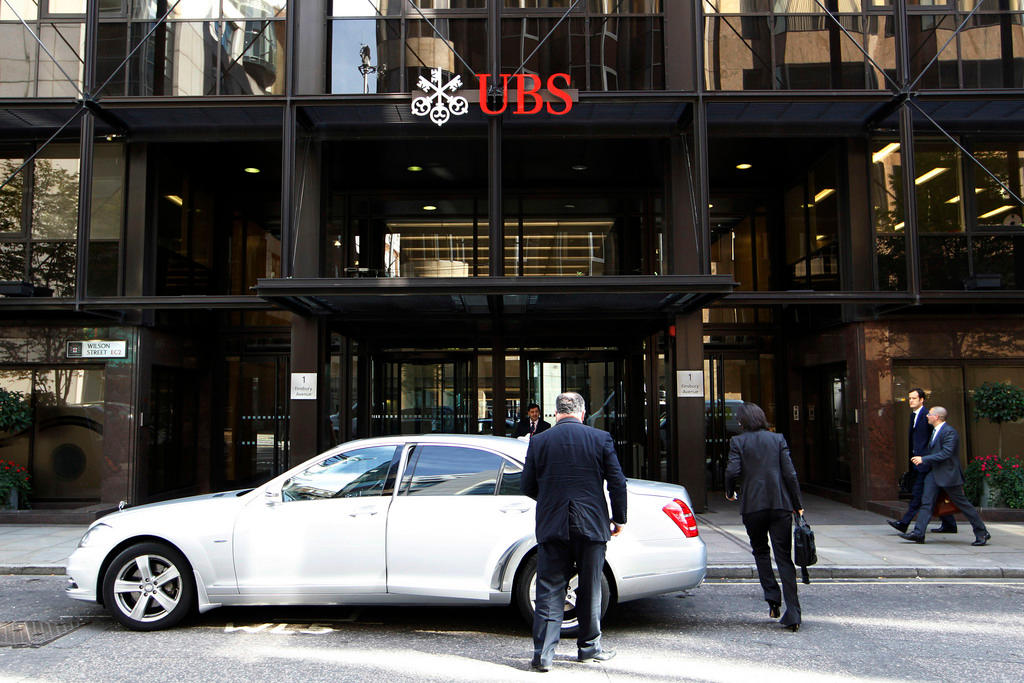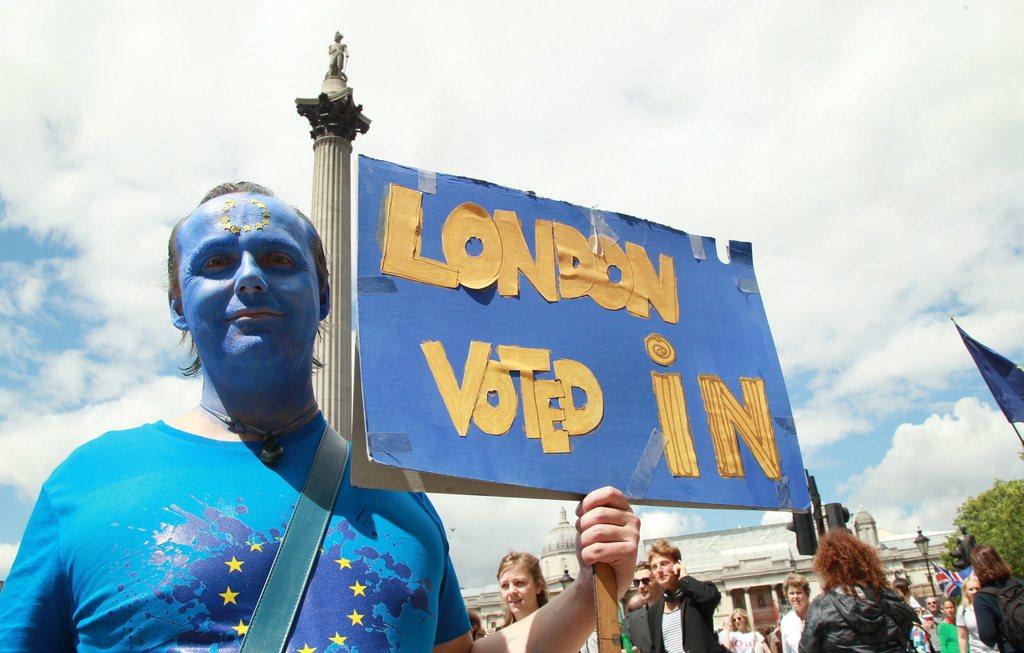UBS plays down chances of Britain leaving EU

Britain has about a 30% chance of exiting the European Union when its citizens vote on June 23, according to economists at Switzerland’s largest bank UBS. Even if a Brexit occurs, the impact on Switzerland and the franc would be minimal, they conclude.
Presenting the findings of its research to reporters in Zurich on Wednesday, UBS predicted that around 55% of British referendum voters would come out in favour of staying in the EU. Although opinion polls indicate a much closer vote, UBS believes that the 15-20% of people who are currently sitting on the fence are more likely to end up voting for no change.
“History tells us that opinion polls underestimate the status quo bias of undecides,” said Dean Turner, UK economist at UBS’s chief investment office wealth management.
According to UBS’s base scenario of no change, the British economy will swiftly recover from its pre-Brexit wobbles. For Switzerland, this would thaw out its own negotiations with the EU on the free movement of people, which have been put on ice until the Brexit issue has been decided.
In 2014, Swiss voters demanded restrictions on mass immigration from EU states by means of their own nationwide vote. The EU refuses to discuss how, or if, the bilateral treaty can be modified with Britain’s own future in the bloc undetermined.
Life after the EU
UBS believes the less likely event of a Brexit could spark further referendums in other countries and a slowdown in further EU integration plans.
But the bank’s economists think the effect on currency exchange rates would not be as damaging as many other observers presume. UBS’s head of European macroeconomics Ricardo Garcia predicts that the franc would appreciate by no more than 5% against the euro if Brexit is realized.
“The Swiss National Bank (SNB) would be quite aggressive [in defending the franc] so the upside [increase in value] would be limited,” he told journalists. Two other factors could also cushion the franc: the attraction of the US dollar as a safe haven currency and the impending end of the European Central Bank’s own spending spree, scheduled for March next year.
Judging how British-EU ties could look if voters force a split is more difficult, according to UBS. It believes the Swiss model of bilateral treaties would still be too close to the EU for the British public to stomach.
It would be difficult for the British government to convince citizens to continue making contributions to the EU budget, accepting the unrestricted free movement of people and comply with the same number of EU regulations as the Swiss.
However, Britain’s close economic ties with the EU would prevent it from drifting too far away from the bloc, particularly its financial centre.

In compliance with the JTI standards
More: SWI swissinfo.ch certified by the Journalism Trust Initiative












You can find an overview of ongoing debates with our journalists here . Please join us!
If you want to start a conversation about a topic raised in this article or want to report factual errors, email us at english@swissinfo.ch.